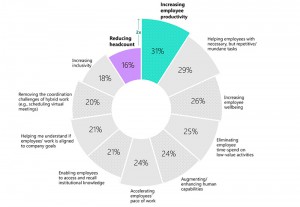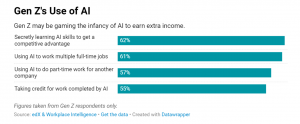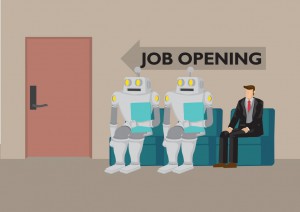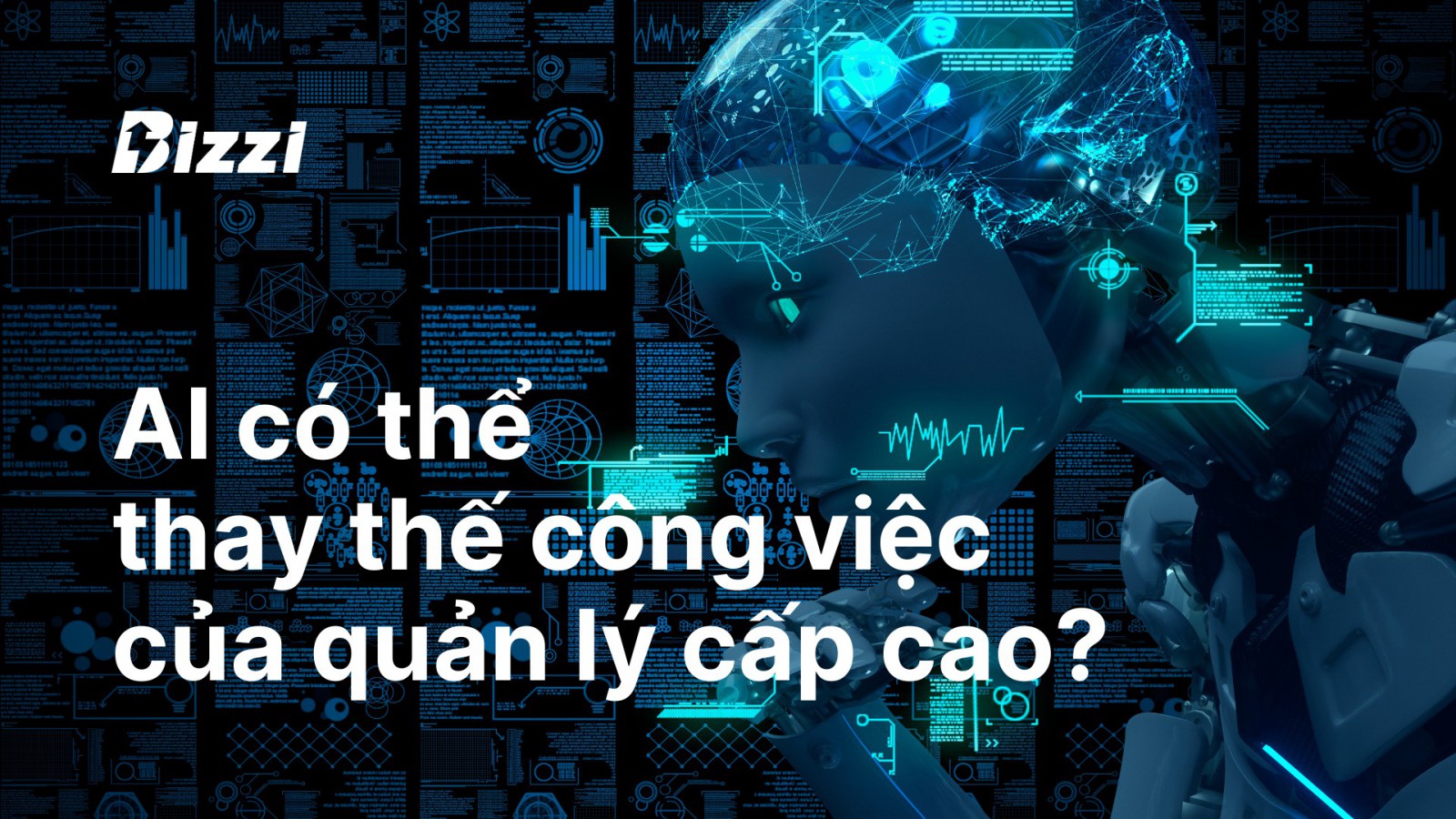As AI increasingly dominates and dominates technology, managers are starting to worry that they are becoming obsolete and redundant. Together Bizzi Learn about senior management's responses to the dominance of AI in this article
The C-suite response to the challenge of AI
AI (Artificial Intelligence), has recently been described as both a blessing and a “boogeyman” and will certainly have a major impact on corporate finance operations. Aspects such as forecasting, KPI identification, cybersecurity, payments, compliance and more need innovation.

With its inherent influence on organizations, AI has warned low-level employees to fear that technology will kick them out of their original positions. As for CEOs, they are really concerned about their employees' ability to adapt to AI. Nearly half of the workforce's existing skills will be irrelevant in two years' time, according to a new survey of 800 C-suites by edX and Workplace Intelligence.
Likewise, a similar proportion of Boards of Directors believe that employees are not prepared for the future of work, and 87% CEOs reported that they are having difficulty finding talent skilled with AI. .
However, CEOs not only worry about their employees but also worry about themselves. Nearly half (49%) of those surveyed said they believe Artificial Intelligence could replace most or all of their jobs. Specifically, among the participating CEOs, 49% said their roles should be completely automated or replaced by AI.
Among C-level responses to AI threats, the priority right now is to develop AI skills. When asked about the greatest value that Artificial Intelligence brings, most business leaders say it increases productivity rather than reducing the number of employees.

Despite the groundswell among CFOs about AI integration progress, more than half of CEOs reported feeling overwhelmed by integrating AI with existing technology (57%).
However, despite the pressures, many executives are looking to leverage AI to ease their workload. Nearly two-thirds (65%) of CEOs said they want AI to be able to assist them with some of their work, even if it means taking a pay cut.
Gen Z and AI
Gen Z is a group with strong opinions about the workplace and labor trends that can use AI much better than their older colleagues.
According to the survey, many Gen Z are "secretly" learning Artificial Intelligence skills in hopes of gaining a competitive advantage over their peers. Nearly two-thirds (62%) of Gen Z employees admit this is true.
Responses from Gen Z participants in the survey show that efforts to earn more money through AI can affect work productivity. More than half of Gen Z employees surveyed admitted to using AI to work multiple full-time jobs (61%), working part-time work for another company (57%).

However, most CEOs don't really care about the disruption to their employees' ability to focus. To encourage employees to learn about AI and how to use it, the majority (82%) of CEOs said they support employees taking on roles that involve using AI at other companies.
Nearly three-quarters (74%) of participating CEOs said employees with knowledge of Artificial Intelligence should be promoted more often, while 83% said such employees should be paid higher salaries.
That may cause disagreement with some employees. Survey respondents also included 800 professionals, only 24% of whom said they were even using their company's existing programs to learn AI skills.
Vietnamese workers and the fear that AI will replace their position
According to Microsoft's 2023 Job Trends Index global research report, there are some notable points about interactions between workers and Artificial Intelligence in Vietnam:
According to the report, 9 in 10 workers in Vietnam (94%) feel comfortable using AI not only for administrative tasks but also for analytical work (94%) and even creative aspects at work (91%). Meanwhile, globally, this rate is 76%, 79%, and 73% respectively.

While people in Vietnam are comfortable with AI, 76% of them admit they do not have enough time and energy to get work done, higher than the global rate of 64%. They also have much greater difficulty adapting and using AI strategies, at a rate of 6.6 times compared to the global rate of 3.5 times.
In addition, 65% leaders in Vietnam expressed concern about the lack of creativity and innovation at work, while this rate globally is 60%.
Only 63% workers in Vietnam think meetings are necessary, while this rate globally is only 35%. At the same time, 79% of workers in Vietnam admitted they were unable to maintain focus throughout the working day, compared to a global rate of 68%.
Regarding worries about having their jobs replaced by Artificial Intelligence, about 54% workers in Vietnam are worried that AI can replace their jobs, while 90% want to assign as many jobs as possible. The better for AI to reduce the workload. These rates globally are 49% and 70% respectively.

Many business leaders in Vietnam believe that AI will increase productivity (35%) rather than replace employees (16%), 2.2 times compared to the global rate of 1.9 times (with 31% and 16% respectively).
The report also points out that not just experts, but all employees need to acquire new core skills, such as the skill to create instructions for AI. 94% of business leaders in Vietnam said their employees will need new skills to prepare for the development of Artificial Intelligence, the rate globally is 82%. At the same time, 80% workers in Vietnam admitted that they currently do not have enough appropriate capacity to complete the job, while the global rate is 60%.
Despite the challenges and concerns, the AI revolution is creating new opportunities and requires learning and adaptation from everyone in the business. Rather than a replacement, Artificial Intelligence can become a powerful partner in creating value and increasing productivity. It is important that we are willing to learn and adapt to make the most of its potential in the future.
Join Bizzi to update trends, share experiences, and connect opportunities for finance and accounting leaders at:
Follow Bizzi to quickly receive the latest information:
- Facebook: https://www.facebook.com/bizzivietnam
- Linkedin: https://www.linkedin.com/company/bizzi-vietnam/
- Youtube: https://www.youtube.com/@bizzivietnam



